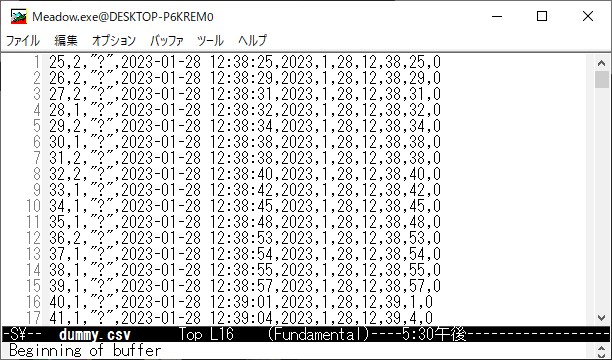先週中頃から腰が痛くなってきて、昨日は寝返りが打てない状況になってきました。
My back has been hurting since the middle of last week and yesterday I could not turn over.
いわゆる、「ギックリがないギックリ腰」の状態です。
This is the so-called "gimpy back with no shocked pain" condition.
原因は『激務』であることは分かっていますが、激務であろうがなかろうが、やることは山積みです。
I know the cause is 'hard work,' but hard work or not, there is a lot of work to be done.
それと、ギックリ腰は、「一日休んだら直る」というものではありません。
And, a gimpy back is not something that can be "fixed after a day's rest.
これは、毎日の負荷を減らし、痛みに耐えながら、日々を送るしか手がありません。
This can only be done by reducing the daily load and enduring the pain.
ギックリ腰は『休み続けるよりは、日常生活を続ける方が直りが早い』という報告もあるようです。
Some people report that "continuing with daily activities is quicker to heal a slipped back than continuing to rest".
-----
問題なのが、「湿布貼り」です。
The problem is the "poultice application".
これ、一人ではできないのです ―― 特に背中や腰については、絶望的です。
This, I can't do alone -- especially with my back and hips, it's hopeless.
最近は、ロキソニン入りの剥れにくい湿布があり、これが非常に効果的なのですが、この貼り方が凄く難しい。
Recently, there is a poultice containing Loxonin that does not peel off easily, which is very effective, but it is very difficult to apply this poultice.
個人で貼るのは無理であると断言できます。
I can assure you that it is impossible for an individual to put it up.


今は、嫁さんが貼ってくれますが、嫁さんが先に逝ってしまったら、私には頼る人がいません。
Right now, my wife is putting it up, but if she passes away before I do, I will have no one to rely on.
(ちなみに、『私が、嫁さんより長生きする』は、結婚時の契約事項です)
(Incidentally, "I will outlive my wife" is a contractual condition of marriage.)
-----
機械・電気・情報工学専攻の学生諸君。
Dear students of Mechanical, Electrical and Computer Engineering.
「ロキソニンSテープ」の自律貼り付け機能を実現する、センサ、アクチュエータ、ロボット、アルゴリズムを開発したら、
Once you develop sensors, actuators, robots, and algorithms that enable the autonomous application of the Loxonin S Tape, you will be able to develop a new product that can be used in a wide variety of applications.
―― お前ら、介護の現場、ナメてんのか
"Are you guys kidding me about the nursing field?"
と、私が叫ばずにすみ、それどころか、世界に対して胸を貼れる研究成果になることは、私が保証します。
I assure you that I will not have to shout it. On the contrary, the results of your research will be something you can be proud of to the world.
企業が、これらの研究に着手しないのは、企業がバカだからではなく(いや、バカかもしれませんが)、人体に対して直接手を触れる機械についての安全基準が高すぎて、開発投資コストがペイしないからです。
Companies do not embark on these studies not because they are stupid (well, maybe they are stupid), but because the safety standards for machines that directly touch the human body are too high to pay for the development research costs.
アカデミズムの価値は、そういう分野に縛られない ―― 自分が被験者となって試して、(プロトタイプであっても)発表できるチャンスがあることです。
The value of academism is that you are not bound to such a field -- you have the chance to be the test subject, try it out, and present it (even as a prototype).
-----
『「ロキソニンSテープ」の自律貼り付け機能』を有するロボットアームの開発は ―― それが、非常に稚拙なものであったとしても、意義のある研究開発になります。
The development of a robotic arm with "automatic application function of 'Loxonin S Tape'" -- even if it is a very poor one -- would be a significant research and development.
そのプロトタイプが完成すれば、企業が投資対効果を真面目に計算できる状況になります。
Once that prototype is completed, the company will be in a position to make a serious calculation of return on investment.
学生研究の意義は、"そこ"にあるのです。
That is the significance of student research.
多分、あなたは"名声"も得られると思います。
Maybe you will get "fame" too.






